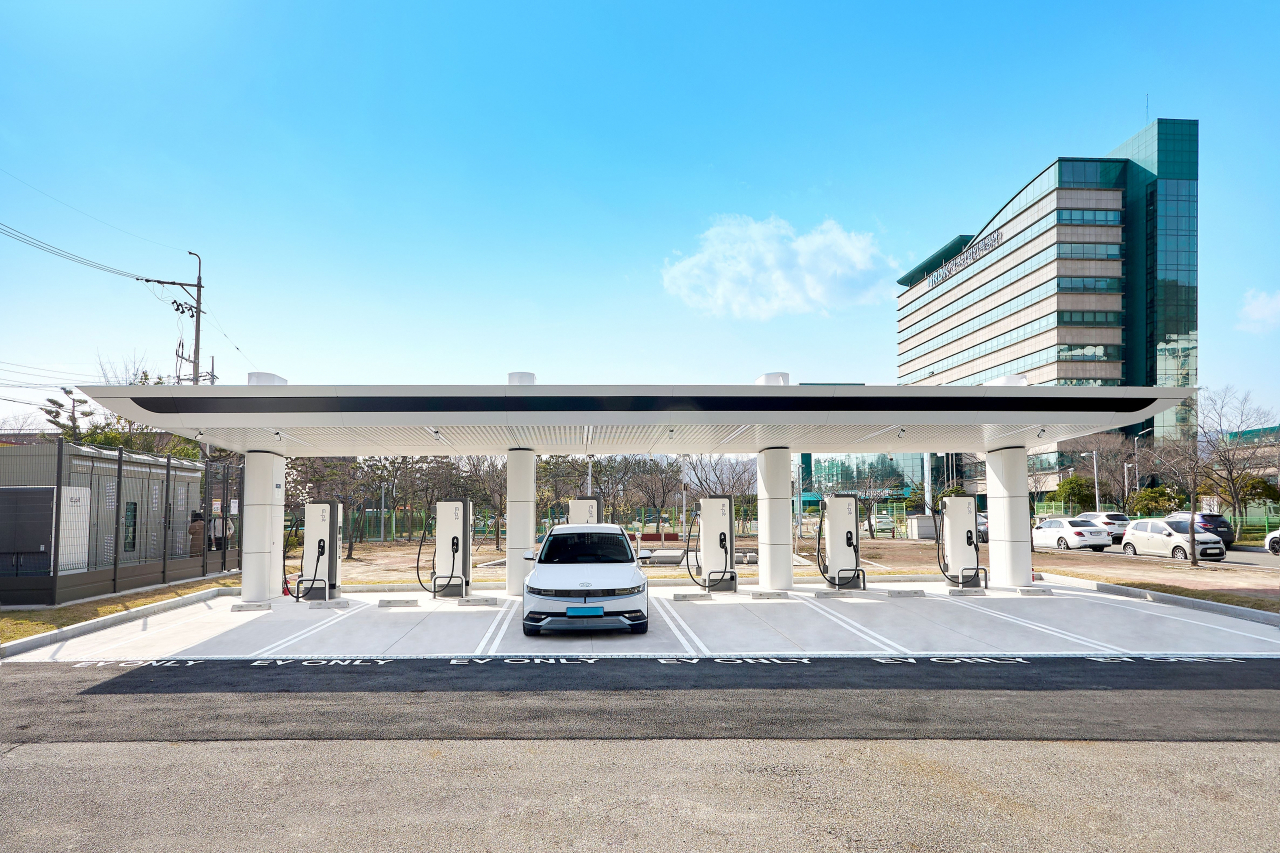 |
Hyundai Motor Group's latest addition to its Epit charging network is located in Geumgok-dong, Busan. (Hyundai Motor Group) |
Hyundai Motor Group revealed on Sunday its plans to double the number of its ultra-fast chargers for electric vehicles in South Korea to 500 by 2025.
As of March, the group operates 286 E-pit EV chargers in 54 locations in Korea. This initiative kicked off in April 2021, with a modest yet strategic deployment of 72 chargers distributed over 12 key rest stops on highways. Achieving the 2025 target of 500 units would mean a 600 percent increase from 2021.
E-pit is Hyundai Motor Group’s ultra-fast charging brand, located at highway rest stops and also key urban locations. It boasts up to 350kW of power and supports a wide voltage range, making it compatible with the group’s latest EV models. For example, it can boost a Hyundai Ioniq 5 or a Kia EV9 from 10 to 80 percent battery in just 18 and 24 minutes, respectively.
Thanks to round-the-clock monitoring to promptly address any malfunctions, Hyundai has managed to halve the annual outage rate to 3 percent in one year from 2022 to 2023. Last year, the average E-pit charging session was recorded at 18.5 minutes.
It has also partnered with the Korea Testing Certification Institute to establish the Electric Vehicle Charging Infrastructure Quality Certification Center. This center ensures the safety, performance, and compatibility of EV charging stations and awards the EV-Q certification mark to approved chargers.
Beyond the E-pit initiative, Hyundai Motor Group is broadening its charging infrastructure by installing 3,000 fast and 20,000 standard chargers across Korea in collaboration with its affiliate Korea Electric Vehicle Charging Service.
Last December, Hyundai also introduced the E-pit Pass, a service that allows Hyundai brand EV owners to easily access and use charging stations operated by various providers through a simple smartphone authentication, eliminating the need for multiple memberships.
Currently, the E-pit pass is compatible with 72,000 EV chargers across Korea, with plans to expand to 260,000 units, covering 85 percent of all EV chargers in Korea, later this year.
Korea has one of the world's highest EV-to-charger ratios at 1.85. The government aims to expand the national charger network to 1.2 million by 2030.







![[Today’s K-pop] Blackpink’s Jennie, Lisa invited to Coachella as solo acts](http://res.heraldm.com/phpwas/restmb_idxmake.php?idx=644&simg=/content/image/2024/11/21/20241121050099_0.jpg)